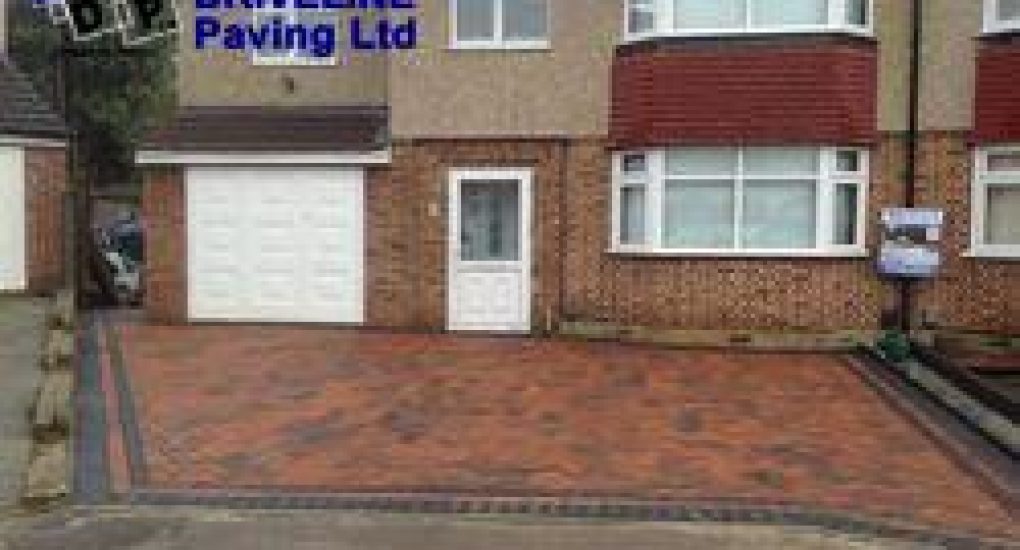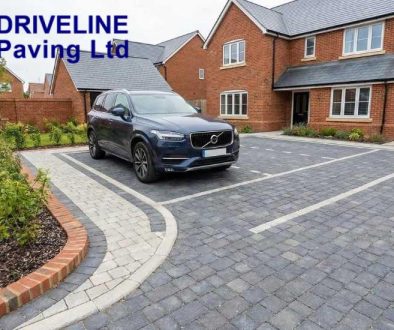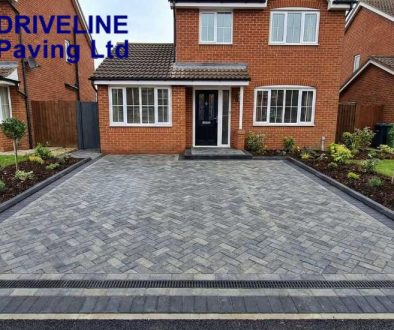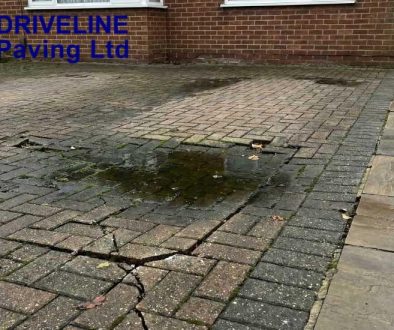Permeable Driveways: Reduce Surface Water and Boost Kerb Appeal
Surface water pooling and worn driveways can undermine both the practicality and appearance of a home, especially under Essex’s unpredictable weather. Homeowners need a solution that not only directs rainwater safely away but also elevates kerb appeal without compromising on durability or style.
Permeable driveways meet these demands by channel-letting rainwater through a robust, multi-layered surface into a free-draining sub-base. Available in resin-bound finishes, porous block paving and grass-grid systems, they reduce flood risk, ease pressure on local sewers, and may even qualify for Environment Agency planning exemptions. With installation costs on par with high-end block paving and the potential to increase property value by up to 5%, they represent a sound investment in both function and form.
What Is a Permeable Driveway?
A permeable driveway is engineered to allow rainwater to pass through the surface and into underlying layers, rather than running off into drains or neighbouring properties. Unlike impervious surfaces, which force water to flow across the top, permeable systems promote infiltration.
Key features of permeable driveways include:
- A free-draining sub-base composed of graded stone or aggregate.
- A porous wearing course, such as resin-bound gravel or permeable block paving.
- Beneath the surface, a geotextile membrane or liner separates soil from aggregate.
By allowing water to filter through these layers, permeable driveways reduce surface pooling and help mitigate flood risk. They also comply with sustainable urban drainage system (SUDS) guidelines, making them an increasingly popular choice in new developments and renovations.
This approach aligns with building regulations—such as Approved Document H on drainage—and may remove the need for costly soakaway installations.
How Permeable Surfaces Manage Surface Water
Permeable surfaces manage water by employing a multi-layer structure that stores rainfall in voids before gradual release. The surface layer lets water pass through, while the sub-base holds it temporarily and channels it into the ground or an engineered drainage system.
Benefits of this approach include:
- Reduced risk of localised flooding and standing water.
- Eased burden on municipal drains and sewers during heavy rainfall.
- Prevention of surface ice formation in winter, improving safety.
Furthermore, permeable driveways can be integrated with soakaways or infiltration trenches to enhance drainage capacity. Expert installation teams ensure that each layer is compacted correctly and that water flows efficiently, preventing blockages and ensuring long-term performance.
Many installers perform infiltration testing during site surveys to quantify the rate at which water percolates through the ground. This data informs sub-base thickness and the inclusion of additional storage cells for heavy rainfall areas.
Environmental Advantages
Permeable driveways support sustainable water management by returning rainwater naturally to the local aquifer. They help maintain natural water cycles and reduce the environmental impact of urban development.
Environmental benefits include:
- Lower levels of surface run-off pollution through filtration of contaminants.
- Enhanced groundwater recharge, supporting local ecosystems.
- Contribution to biodiversity by reducing soil erosion and waterlogging.
These systems can also be specified with recycled aggregates or locally sourced materials, minimising embodied carbon and supporting circular economy principles. Permeable driveways can mitigate urban heat island effects by reducing surface temperatures compared to solid, dark surfaces, and the increased water retention contributes to local habitat creation for insects and plants.
Boosting Kerb Appeal with Permeable Driveways
Permeable driveways not only perform well but also bring significant aesthetic advantages. A wide selection of finishes, colours, and textures allows homeowners to create a bespoke look that complements architectural styles and landscaping schemes.
Homeowners can choose from:
- Resin-bound surfaces offering a smooth, decorative finish with a broad palette of aggregates.
- Permeable block paving in an array of shapes, sizes, and colour blends.
- Grass grid systems that merge greenery with load-bearing performance.
With professional advice on design patterns, joint arrangements, and edge restraint details, a permeable driveway can become a standout feature that enhances overall property value and kerb appeal.
Current design trends include geometric patterns and mixed-material layouts that draw attention to the driveway as a focal point. Studies show that well-designed driveways can boost property value by up to 5%, delivering a strong return on investment.
For homeowners in Enfield, permeable driveways are particularly useful where heavy rain and surface water can quickly build up on older hardstandings. When we handle driveway installation in Enfield, we focus on designs that improve drainage as well as kerb appeal, so your new surface looks smart and performs well in local conditions. You can see how this works in practice on our dedicated Enfield driveways page.

Choosing the Right Permeable Material
Selecting the most suitable permeable material requires consideration of traffic loads, appearance preferences, and maintenance levels. Trusted providers assess each project individually to recommend the optimal solution.
Common materials include:
- Resin-bound gravel: Highly durable and seamless, with minimal water spray under vehicles.
- Porous block paving: Strong structural integrity, easy to replace individual units if needed.
- Permeable tarmac and grass grids: Cost-effective, offering both functionality and an eco-friendly visual.
A thorough site survey will evaluate sub-soil conditions, predicted usage, and local drainage requirements, ensuring the chosen material meets performance standards and aesthetic goals. Budget considerations vary: grass grids offer the most affordable entry point, while resin-bound surfaces command a premium price due to ease of maintenance and aesthetic versatility. Each option carries a different lifespan expectancy, typically ranging from 15 to 25 years.
What to Expect from Expert Installation
Professional services for permeable driveways rest on meticulous groundworks, precise sub-base construction, and high-quality surfacing. Each stage is critical to achieving long-term durability and effective water management.
Installation steps often comprise:
- Excavation to the required depth, including removal of unsuitable soil.
- Layering and compaction of sub-base materials to specified densities.
- Installation of optional soakaway or drainage channels.
- Laying of the chosen surface material, followed by careful finishing and compaction.
- Final quality checks, edge restraints, and joint sealing if necessary.
Quality-focused installers will provide clear project timelines, transparent cost breakdowns, and compliance documentation, allowing homeowners to plan effectively and trust the expertise behind their new driveway. Timelines for installation generally span one to three days, depending on project size and ground conditions. Many trusted providers offer workmanship warranties and follow-up inspections to ensure long-term satisfaction and performance.
Maintenance Tips for Longevity
While permeable driveways require relatively low maintenance, regular care ensures sustained performance and appearance. Routine upkeep prevents blockages and addresses minor issues before they escalate.
Recommended maintenance tasks include:
- Sweeping or brushing to clear leaves, grit, and other debris.
- Periodic low-pressure washing to remove embedded dirt and prevent algae growth.
- Inspection and cleaning of any drainage channels, filters, or catch pits.
- Prompt removal of weeds or moss in joints to maintain porosity.
- Occasional checks for subsidence, polishing surface aggregates, and reapplying joint stabilisers when needed.
Adhering to a simple maintenance schedule prolongs the lifespan of the surface and protects your investment in kerb appeal and water management. For additional reassurance, homeowners may arrange an annual inspection with a drainage specialist to check sub-base integrity and clear any hidden blockages.
Ready to Transform Your Driveway?
A professionally installed permeable driveway merges form and function, channelling rainwater efficiently while creating a bespoke kerb appeal. Whether you opt for resin-bound finishes, porous block paving or grass-grid systems, this solution ensures durability, supports local drainage and can boost property value by up to 5%.
When you’re ready to boost your home’s kerb appeal with a durable, sustainable driveway, visit Driveline Paving Ltd’s contact page to request your free, no-obligation quote today.



